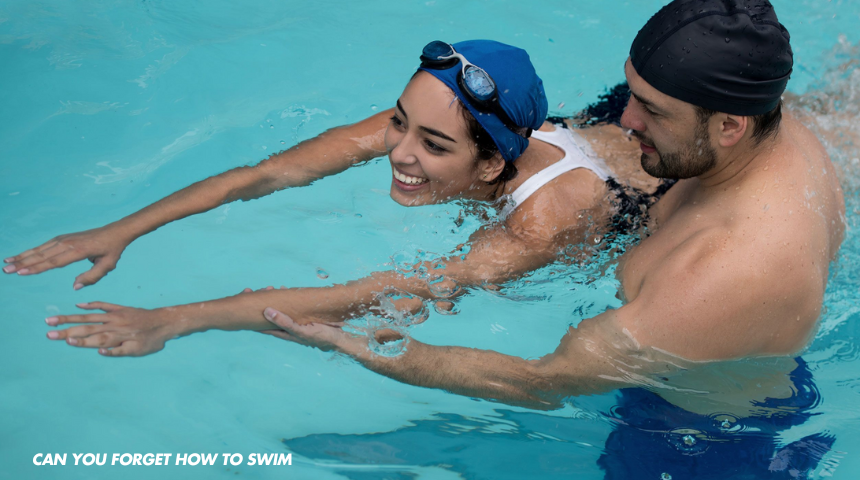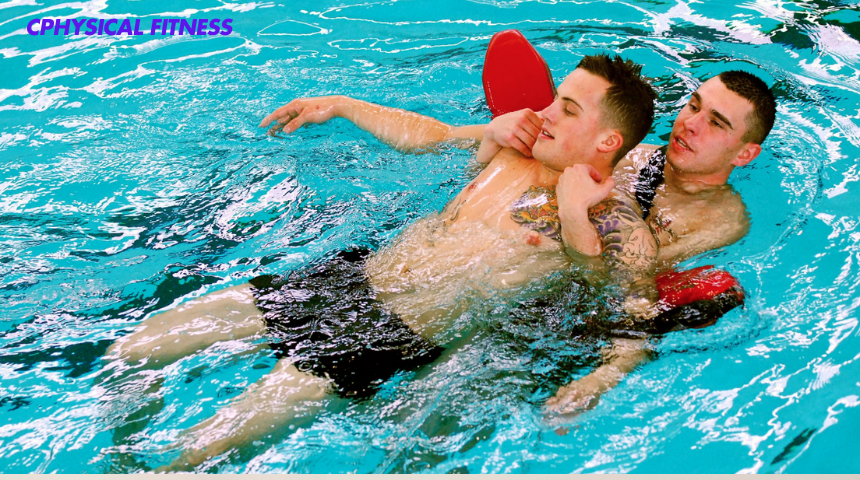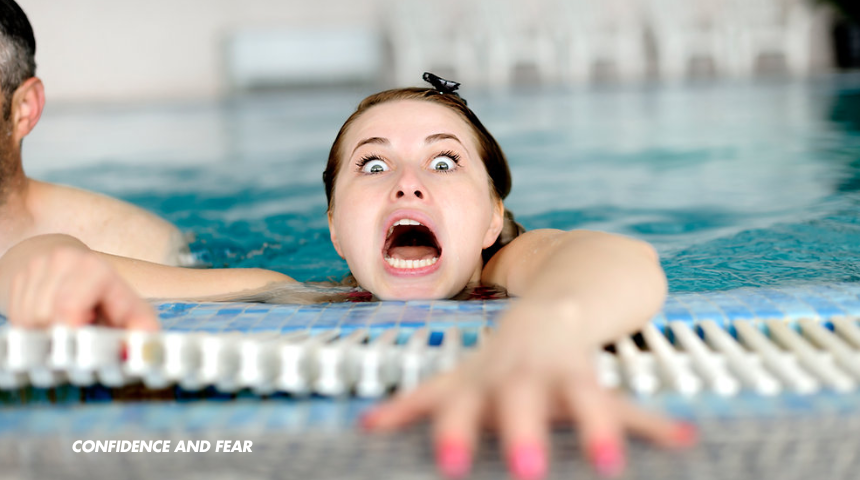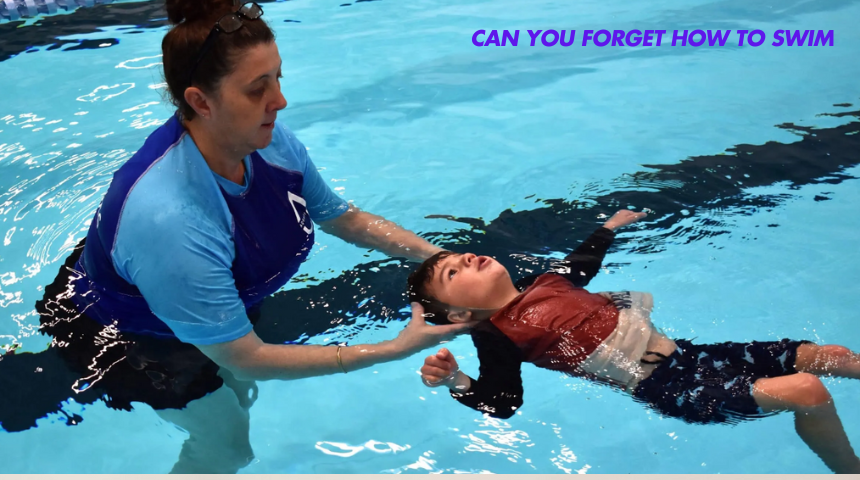Swimming is often described as a skill you never lose, like riding a bike. But what happens if you’ve been out of the water for years? Maybe you once swam like a fish but now hesitate at the thought of diving in.
This common concern raises an intriguing question: can you really forget how to swim? Let’s dive into the science and explore what happens to your swimming skills over time.
Can You Forget How To Swim?
There isn’t a country in the world where people don’t swim. But no one truly forgets how to swim. If you haven’t swum in a long time, it might feel like you’ve forgotten. Yet, as soon as you step into the water, your body remembers.
Swimming is a skill deeply rooted in muscle memory. It might feel awkward at first, but the rhythm comes back quickly. Take a break from the hustle of city life. On your next free day, find a pond, lake, or pool nearby. Step in and see if you can swim again.

I believe you’ll surprise yourself with how naturally it comes back. Let’s explore why swimming feels unforgettable and how you can regain confidence in the water!
The Science Behind Muscle Memory
Swimming is not just about knowing how to stay afloat; it’s a coordination of muscles, breathing, and rhythm. When you swim regularly, your brain develops “muscle memory,” a mechanism that helps your body remember complex movements without conscious effort.
This motor learning process means that even after years away from the water, your brain retains the basic framework of swimming. However, muscle memory is not a magical cure-all.
While the foundational skills may remain, muscle strength and endurance diminish over time. Your ability to execute movements smoothly may decrease without regular practice.
Additionally, motor skills require some level of upkeep to maintain precision, especially for techniques that involve fine-tuned coordination, such as stroke mechanics or flip turns.
This balance between retention and deterioration highlights the importance of staying active, even in small ways.
Factors That May Affect Swimming Ability
Physical Fitness
Swimming is a full-body workout, and every aspect of your fitness—from cardiovascular endurance to muscle strength—plays a role in your ability to swim effectively. If you’ve been inactive, your body may not respond as efficiently in the water.

Over time, reduced fitness can make it harder to generate propulsion, maintain proper body position, or sustain energy during a swim session.
Rebuilding fitness takes time, but even moderate physical activity outside of swimming can help bridge the gap and make returning to the water easier.
Confidence and Fear
A long break from swimming can impact your confidence in the water. If you’ve experienced a near-drowning incident or have grown unfamiliar with aquatic environments,

fear can overshadow your skills. Psychological barriers are just as important to address as physical ones. Many swimmers returning after years may find it helpful to start in a controlled, shallow environment and gradually rebuild trust in their abilities.
Technique Decay
Unlike basic survival skills like floating, advanced techniques—such as efficient stroke mechanics or competitive starts and turns—require consistent practice to maintain. Without regular reinforcement, your strokes may feel less effective, and movements could become less fluid.
This doesn’t mean you’ve forgotten how to swim; it simply means your body needs time to re-learn the details of efficient swimming. Technique-focused drills and professional guidance can help polish those rusty skills.
Real-Life Scenarios
Many people who take a hiatus from swimming find that their return to the water is not as smooth as they hoped. For instance, a person who swam competitively as a teenager might find their strokes sloppy or their breath control lacking years later.
However, most report that after a few sessions, the old skills start to resurface. Think of it like rediscovering an old hobby. The basic knowledge is still there, but your body needs to rebuild the physical strength and mental coordination to execute it well.
Some swimmers may also encounter surprises, such as how their body feels in the water or changes in buoyancy due to weight gain or loss over the years. These adjustments are normal and part of the reclamation process.
Can You Truly Forget?
Experts agree that completely forgetting how to swim is unlikely. The foundational skills, such as floating and basic strokes, tend to stay intact.
These are ingrained in your procedural memory, a type of long-term memory responsible for tasks like riding a bike or typing on a keyboard.
However, just because you haven’t “forgotten” doesn’t mean you’ll perform flawlessly. Over time, your body’s readiness to execute those skills may diminish, especially if physical or psychological barriers have developed.
Think of it as a dormant talent waiting to be awakened with practice and patience.
Tips For Regaining Confidence In The Water
If you’re feeling apprehensive about swimming again, here are some tips to ease your way back:
- Start with Basics: Begin with foundational skills like floating, kicking, and simple strokes. This helps you rebuild familiarity and confidence in the water.
- Focus on Breathing: Breathing is one of the most critical aspects of swimming. Practice exhaling underwater and maintaining a relaxed rhythm to stay calm and efficient.
- Take Lessons: A professional coach can assess your current abilities, identify areas for improvement, and guide you in refining your techniques. Even a few sessions can make a big difference.
- Build Endurance Gradually: Don’t push yourself too hard in the beginning. Start with short sessions and gradually increase your time and intensity in the water.
- Practice Consistently: Consistency is key to reactivating muscle memory and rebuilding your swimming proficiency. Even a few minutes of regular practice can yield significant progress.
How Does Memory Work When It Comes To Swimming?
Memory in swimming involves both procedural and muscle memory. Procedural memory stores the basic framework for swimming, like how to float or perform a stroke, and is a type of long-term memory responsible for learned tasks.

Muscle memory complements this by encoding the repeated physical motions of swimming into your muscles and brain. Even after years of not swimming, these memories remain intact to a degree.
However, they may require reactivation through practice. While the knowledge of how to swim doesn’t vanish, physical and mental readiness can fade without consistent reinforcement.
This explains why swimmers often feel rusty after a long break but quickly regain their skills with regular sessions.
How Many Levels Are There In Learning To Swim?
Learning to swim typically involves multiple levels, which vary depending on the program or institution. However, most systems include the following core stages:
- Water Familiarization: Getting comfortable in the water, learning to submerge your face, and basic floating skills.
- Basic Water Safety Skills: Learning to tread water, float independently, and enter/exit the pool safely.
- Beginner Swimming Techniques: Introduction to basic strokes like freestyle and backstroke, along with breath control.
- Intermediate Techniques: Refining strokes, improving coordination, and increasing swimming distance.
- Advanced Swimming Skills: Mastering advanced strokes like butterfly and breaststroke, plus techniques like flip turns.
- Lifeguard/Survival Skills: Learning rescue techniques, long-distance swimming, and water survival skills.
FAQ
Can someone completely forget how to swim?
No, you can’t completely forget how to swim. Basic skills like floating and kicking are retained in muscle memory.
Why do I feel clumsy in the water after years?
Your fitness level and coordination may decline over time. Consistent practice can help restore smooth movements.
Is it normal to feel scared returning to swimming?
Yes, fear or lack of confidence is common. Start in shallow water to rebuild trust in your abilities.
How long does it take to regain swimming skills?
It depends on your fitness level and experience. Many regain confidence after a few practice sessions.
Should I take swimming lessons after a long break?
Yes, lessons can help refine your technique and build confidence, especially if you’ve been away for years.
Conclusion
So, can you forget how to swim? Not entirely. While extended breaks can make you feel out of practice, the foundational skills of swimming remain with you.
With patience and a little effort, you can reconnect with the water and even improve upon where you left off. Don’t let fear hold you back—embrace the journey of rediscovery.
And if you’ve already taken the plunge after a long time away, I’d love to hear your comeback story. Share it in the comments below!